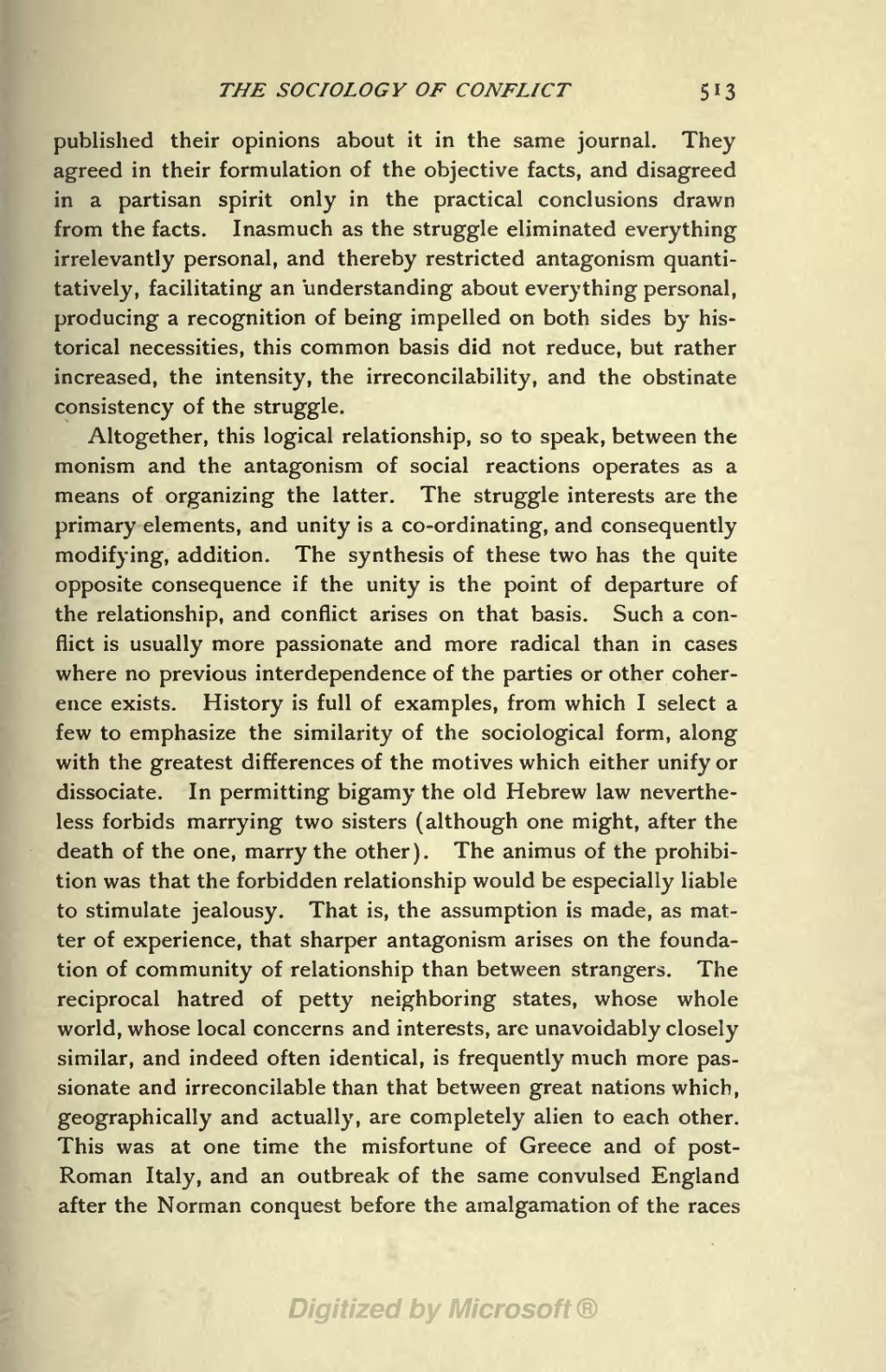THE SOCIOLOGY OF CONFLICT 5 I 3
published their opinions about it in the same journal. They agreed in their formulation of the objective facts, and disagreed in a partisan spirit only in the practical conclusions drawn from the facts. Inasmuch as the struggle eliminated everything irrelevantly personal, and thereby restricted antagonism quanti- tatively, facilitating an understanding about everything personal, producing a recognition of being impelled on both sides by his- torical necessities, this common basis did not reduce, but rather increased, the intensity, the irreconcilability, and the obstinate consistency of the struggle.
Altogether, this logical relationship, so to speak, between the monism and the antagonism of social reactions operates as a means of organizing the latter. The struggle interests are the primary elements, and unity is a co-ordinating, and consequently modifying, addition. The synthesis of these two has the quite opposite consequence if the unity is the point of departure of the relationship, and conflict arises on that basis. Such a con- flict is usually more passionate and more radical than in cases where no previous interdependence of the parties or other coher- ence exists. History is full of examples, from which I select a few to emphasize the similarity of the sociological form, along with the greatest differences of the motives which either unify or dissociate. In permitting bigamy the old Hebrew law neverthe- less forbids marrying two sisters (although one might, after the death of the one, marry the other). The animus of the prohibi- tion was that the forbidden relationship would be especially liable to stimulate jealousy. That is, the assumption is made, as mat- ter of experience, that sharper antagonism arises on the founda- tion of community of relationship than between strangers. The reciprocal hatred of petty neighboring states, whose whole world, whose local concerns and interests, are unavoidably closely similar, and indeed often identical, is frequently much more pas- sionate and irreconcilable than that between great nations which, geographically and actually, are completely alien to each other. This was at one time the misfortune of Greece and of post- Roman Italy, and an outbreak of the same convulsed England after the Norman conquest before the amalgamation of the races
